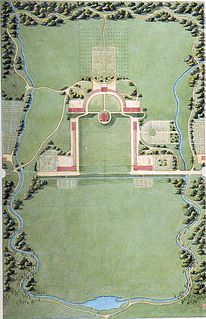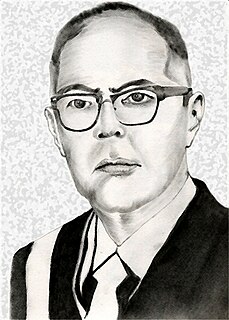
The Institute of History of Nicaragua and Central America (Spanish: Instituto de Historia de Nicaragua y Centroamérica, IHNCA) is an award-winning research institute that is connected to the Central American University in Nicaragua.

Spanish or Castilian is a Romance language that originated in the Castile region of Spain and today has hundreds of millions of native speakers in the Americas and Spain. It is a global language and the world's second-most spoken native language, after Mandarin Chinese.

Nicaragua, officially the Republic of Nicaragua, is the largest country in the Central American isthmus, bordered by Honduras to the northwest, the Caribbean to the east, Costa Rica to the south, and the Pacific Ocean to the southwest. Managua is the country's capital and largest city and is also the third-largest city in Central America, behind Tegucigalpa and Guatemala City. The multi-ethnic population of six million includes people of indigenous, European, African, and Asian heritage. The main language is Spanish. Indigenous tribes on the Mosquito Coast speak their own languages and English.
The institute is settled at the campus of the university in Managua. The building has several halls and rooms for lectures, research, documentation, and expositions. [1]

A campus is traditionally the land on which a college or university and related institutional buildings are situated. Usually a college campus includes libraries, lecture halls, residence halls, student centers or dining halls, and park-like settings.

Managua is the capital and largest city of Nicaragua, and the center of an eponymous department. Located on the southwestern shore of Lake Managua, it had an estimated population 1,042,641 in 2016 within the city's administrative limits and a population of 1,401,687 in the metropolitan area, which additionally includes the municipalities of Ciudad Sandino, El Crucero, Nindirí, Ticuantepe and Tipitapa.
The IHNCA originates out of a merger in 1997 of the Library of the Central-American Historical Institute (Biblioteca del Instituto Histórico Centroamericano) and the Institute of History of Nicaragua (Instituto de Historia de Nicaragua). These institutes were founded in 1934 and 1987 respectively. [1]
The institute is dedicated to the research, spread of knowledge on history, and the administration of historical heritage. [1] It has executed thorough research and looks after an archive of more than 50,000 books, many papers, audio recordings, films, video's, maps and collections of paintings, masks and other artifacts [2]

History is the study of the past as it is described in written documents. Events occurring before written record are considered prehistory. It is an umbrella term that relates to past events as well as the memory, discovery, collection, organization, presentation, and interpretation of information about these events. Scholars who write about history are called historians.

Cultural heritage is the legacy of physical artifacts and intangible attributes of a group or society that is inherited from past generations.
In 2009, the institute received one of the Prince Claus Awards from the Netherlands. [2]




